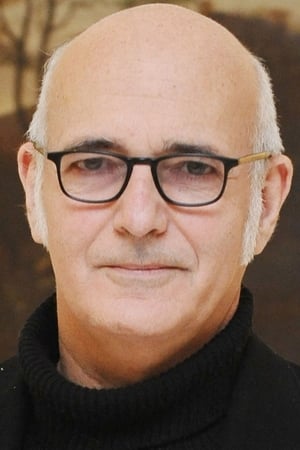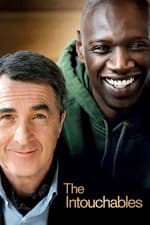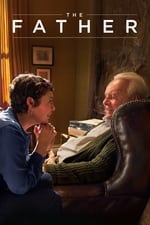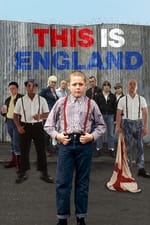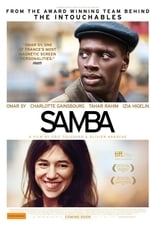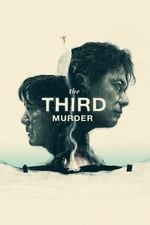Personal Info
Stage Name Ludovico Einaudi
Known For Sound
Known Credits 33
Gender Male
Birthday November 23, 1965 (58 years old)
Place of Birth Torino, Italy
Also Known As
- -
Content Score
100
Yes! Looking good!
Login to report an issue
Biography
Ludovico Maria Enrico Einaudi OMRI (born 23 November 1955) is an Italian pianist and composer. Trained at the Conservatorio Verdi in Milan, Einaudi began his career as a classical composer, later incorporating other styles and genres such as pop, rock, folk, and world music.
Einaudi has composed the scores for a number of films and television productions, including This Is England, The Intouchables, I'm Still Here, Nomadland, the TV miniseries Doctor Zhivago, and Acquario (1996), for which he won the Grolla d'oro. His music was used as the score for the Golden Globe and Academy Award-winning films Nomadland and The Father.
He has also released a number of solo albums for piano and other instruments, notably I Giorni in 2001, Nightbook in 2009, and In a Time Lapse in 2013. On 1 March 2019, Einaudi announced a seven-part project named Seven Days Walking, which was released over the course of seven months in 2019.
Einaudi was born in Turin, Piedmont. His father, Giulio Einaudi, was a publisher working with authors including Italo Calvino and Primo Levi, and founder of Giulio Einaudi Editore, while his paternal grandfather, Luigi Einaudi, was President of Italy between 1948 and 1955. His mother, Renata Aldrovandi, played the piano to him as a child. Her father, Waldo Aldrovandi, was a pianist, opera conductor, and composer who emigrated to Australia after World War II.
Einaudi started composing his own music as a teenager, first writing by playing a folk guitar. He began his musical training at the Conservatorio Verdi in Milan, obtaining a diploma in composition in 1982. That same year he took an orchestration class taught by Luciano Berio and was awarded a scholarship to the Tanglewood Music Festival. According to Einaudi, "[Luciano Berio] did some interesting work with African vocal music and did some arrangements of Beatles songs, and he taught me that there is a sort of dignity inside music. I learnt orchestration from him and a very open way of thinking about music." He also learned by collaborating with musicians such as Ballaké Sissoko from Mali and Djivan Gasparyan from Armenia. His music is ambient, meditative, and often introspective, drawing on minimalism and contemporary pop.
After studying at the conservatory in Milan and subsequently with Berio, Einaudi spent several years composing in traditional forms, including several chamber and orchestral compositions. He soon garnered international attention and his music was performed at venues such as the Teatro alla Scala, the Tanglewood Music Festival, Lincoln Center, and the UCLA Center for Performing Arts.]
In the mid-1980s, he began to search for more personal expression in a series of works for dance and multimedia, and later for piano.
Some of his collaborations in theater, video, and dance included compositions for the Sul filo d'Orfeo in 1984, Time Out in 1988, a dance-theater piece created with writer Andrea De Carlo, The Wild Man in 1990, and the Emperor in 1991. Later collaborations include Salgari (Per terra e per mare) (1995), an opera/ballet commissioned by the Arena di Verona with texts by Emilio Salgari, Rabindranath Tagore, and Charles Duke Jr, and E.A. Poe (1997), which was conceived as a soundtrack for silent films. ...
Source: Article "Ludovico Einaudi" from Wikipedia in English, licensed under CC-BY-SA 3.0.
Ludovico Maria Enrico Einaudi OMRI (born 23 November 1955) is an Italian pianist and composer. Trained at the Conservatorio Verdi in Milan, Einaudi began his career as a classical composer, later incorporating other styles and genres such as pop, rock, folk, and world music.
Einaudi has composed the scores for a number of films and television productions, including This Is England, The Intouchables, I'm Still Here, Nomadland, the TV miniseries Doctor Zhivago, and Acquario (1996), for which he won the Grolla d'oro. His music was used as the score for the Golden Globe and Academy Award-winning films Nomadland and The Father.
He has also released a number of solo albums for piano and other instruments, notably I Giorni in 2001, Nightbook in 2009, and In a Time Lapse in 2013. On 1 March 2019, Einaudi announced a seven-part project named Seven Days Walking, which was released over the course of seven months in 2019.
Einaudi was born in Turin, Piedmont. His father, Giulio Einaudi, was a publisher working with authors including Italo Calvino and Primo Levi, and founder of Giulio Einaudi Editore, while his paternal grandfather, Luigi Einaudi, was President of Italy between 1948 and 1955. His mother, Renata Aldrovandi, played the piano to him as a child. Her father, Waldo Aldrovandi, was a pianist, opera conductor, and composer who emigrated to Australia after World War II.
Einaudi started composing his own music as a teenager, first writing by playing a folk guitar. He began his musical training at the Conservatorio Verdi in Milan, obtaining a diploma in composition in 1982. That same year he took an orchestration class taught by Luciano Berio and was awarded a scholarship to the Tanglewood Music Festival. According to Einaudi, "[Luciano Berio] did some interesting work with African vocal music and did some arrangements of Beatles songs, and he taught me that there is a sort of dignity inside music. I learnt orchestration from him and a very open way of thinking about music." He also learned by collaborating with musicians such as Ballaké Sissoko from Mali and Djivan Gasparyan from Armenia. His music is ambient, meditative, and often introspective, drawing on minimalism and contemporary pop.
After studying at the conservatory in Milan and subsequently with Berio, Einaudi spent several years composing in traditional forms, including several chamber and orchestral compositions. He soon garnered international attention and his music was performed at venues such as the Teatro alla Scala, the Tanglewood Music Festival, Lincoln Center, and the UCLA Center for Performing Arts.]
In the mid-1980s, he began to search for more personal expression in a series of works for dance and multimedia, and later for piano.
Some of his collaborations in theater, video, and dance included compositions for the Sul filo d'Orfeo in 1984, Time Out in 1988, a dance-theater piece created with writer Andrea De Carlo, The Wild Man in 1990, and the Emperor in 1991. Later collaborations include Salgari (Per terra e per mare) (1995), an opera/ballet commissioned by the Arena di Verona with texts by Emilio Salgari, Rabindranath Tagore, and Charles Duke Jr, and E.A. Poe (1997), which was conceived as a soundtrack for silent films. ...
Source: Article "Ludovico Einaudi" from Wikipedia in English, licensed under CC-BY-SA 3.0.
Sound
|
|||||||||||||||||||||
|
|||||||||||||||||||||
|
|||||||||||||||||||||
|
|||||||||||||||||||||
|
|||||||||||||||||||||
|
|||||||||||||||||||||
|
|||||||||||||||||||||
|
|||||||||||||||||||||
|
|||||||||||||||||||||
|
|||||||||||||||||||||
|
|||||||||||||||||||||
|
|||||||||||||||||||||
|
|||||||||||||||||||||
|
|||||||||||||||||||||
|
Acting
|
||||||
|
||||||
|
||||||
|
||||||
|
||||||
|
||||||
|
||||||
|
Crew
|
|||
|
|||
|
